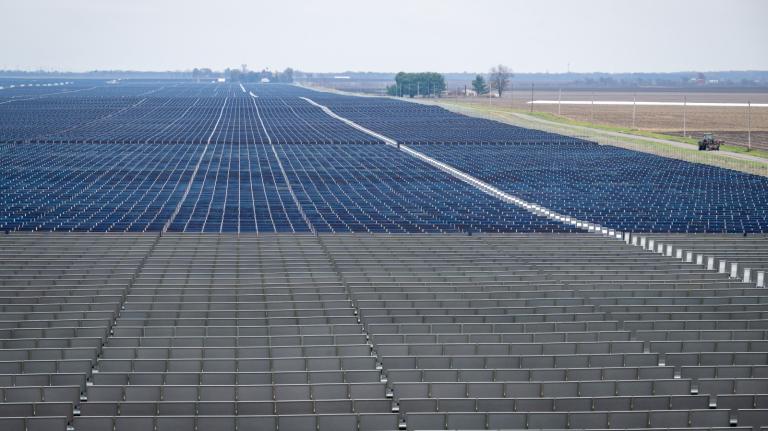I’ve written about efforts by the citizens of Boulder, Colo., to escape from their investor-owned utility (Xcel) and create their own, publicly owned municipal utility. Apparently that story is part of a trend! The New York Times covers it today. There’s not much new in the piece for those who have been following this stuff, but it’s a nice introduction.
Most Americans don’t understand that “private” utilities are not really “private” in the sense that other businesses are private. They are investor-owned, yes. They make profits for executives and shareholders, yes. But they also enjoy government-granted monopolies, which is to say, they face no competition. Their profits are guaranteed. Those of you who have read your Adam Smith will recall that competition is the fundamental force behind the beneficent Invisible Hand of the Market.
What happens if you take a market and remove competition but leave private profits in place? You get what you have traditionally gotten from U.S. utilities: lazy, bloated, hyper-cautious, innovation-averse giants.
Now, I’m generalizing, obviously. Some utilities are better than others; some really do take efficiency seriously; some really do innovate. But overall, historically, the U.S. utility sector has been a shit sandwich.
What to do?
The current quasi-private arrangement — a monopoly coupled with private profits — is a recipe for stagnation. The answer, as I see it, is to go either fully private or fully public.
Fully private would mean that the grid (transmission and distribution lines) is run as an open public resource, along the lines of “net neutrality.” Any provider of energy services could gain access to it, on a nondiscriminatory basis. They could compete for consumers, not just on price but on convenience, ecological sensitivity, luxury, all the other drivers of consumer markets. This would produce real competition and make electricity into a real market, like Pinocchio becoming a real boy.
Fully public utilities would mean … well, the NYT captures it pretty well here:
Roughly 70 percent of the nation’s homes are powered through private, investor-owned utilities, which are allowed to earn a set profit on their investments, normally through the rates they charge customers. But government-owned utilities, most of them formed 50 to 100 years ago, are nonprofit entities that do not answer to shareholders. They have access to tax-exempt financing for their projects, they do not pay federal income tax and they tend to pay their executives salaries that are on par with government levels, rather than higher corporate rates.
That financial structure can help municipal utilities supply cheaper electricity.
This makes sense to me. And from what I hear, people are generally happier with the performance of municipal utilities, though it’s worth noting that many rural co-ops (the munies of old) are awful on climate and in love with coal. Local control does not, by any means, guarantee ecological intent.
The current push in Boulder and elsewhere, however, does seem to be driven by green sentiment. Boulder thinks it can do better than Xcel on carbon, and it’s probably right.
The question of what to do with the U.S. utility sector is a real puzzler, especially given the current meshuggaas, with half the country quasi-deregulated and half still stuck with regulated monopolies. I guess I lean toward the private model, with open competition taking place on a neutral backdrop, like the internet. But that leaves aside the crucial question of how to ensure reliability, or more to the point, who’s ultimately responsible for lapses in reliability.
It makes my head hurt. If you want to dig in more, there are tons and tons of great ideas in Electricity 2.0, a report from Michael Moynihan at NDN.
One thing I do know is that the U.S. will never achieve ambitious clean-energy goals with its current dysfunctional electricity system. I see increased competition from municipal utilities as an unmitigated good. If nothing else, it will shake things loose in an industry that’s too long been sclerotic.



